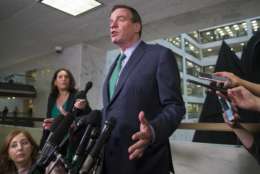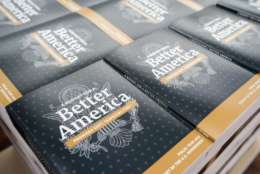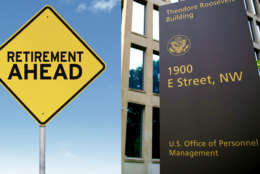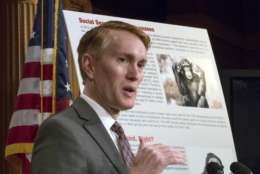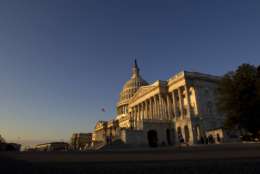Retirement
-
Sen. James Lankford says whatever retirement changes occur should only apply to new hires. Hear this story and more in today's Federal Newscast.
March 15, 2019 -
Several members of Congress have declared the President's proposed cuts to federal employee retirement "dead on arrival," while at least one Republican has expressed more of an interest in developing a new system for prospective employees.
March 14, 2019 -
Hardly anybody joins the government planning to become rich but you could be well on the way to millionaire status if you meet a few key characteristics.
March 13, 2019 -
Ever since the late 1990s some experts on government matters have been predicting a tidal wave of retirements from key federal agencies. That sparked fears of a brain drain as experienced feds fled their jobs heading for the shuffle-board courts.
March 12, 2019 -
The Trump administration for the third consecutive year has recommended cuts to federal employee retirement and health benefits as part of its 2020 budget request.
March 11, 2019 -
Most of the House Republicans who repeatedly tried to cut costs in the massive FERS program are either gone from Congress or relegated by the 2016 midterm elections to minority status.
March 11, 2019 -
Federal retirement planning expert Tammy Flanagan joined Federal Drive with Tom Temin for some of the important questions that need asking before making the decision to retire.
March 06, 2019 -
For now, the 35-day government shutdown does not seem to have caused a massive increase in federal retirement, despite predictions to the contrary.
March 06, 2019 -
Automatic General Schedule step increases, the lengthy federal hiring process and the retirement supplement for certain employees are among the issues Sen. James Lankford (R-Okla.) has highlighted in his annual waste book.
March 05, 2019 -
The average Thrift Savings Plan balance for Federal Employees Retirement System participants — 3.3 million people — was $138,933 in January.
March 01, 2019 -
For federal workers the good news is that Congress approved a 1.9 percent raise for them despite the fact that the president wanted to freeze pay in 2019.
February 28, 2019 -
As more companies scale-back or more often eliminate retirement plans for their workers, the government’s benefits package looks better and better to many private sector employees. But all comparisons are relative.
February 27, 2019 -
Another member of Congress has introduced legislation that would give federal employees the option to take a penalty-free hardship withdrawal from their Thrift Savings Plan during government shutdowns. Meanwhile, the TSP is also still struggling to improve its cybersecurity posture.
February 25, 2019 -
But if you don’t appreciate politicians trying to eliminate long-promised features of your Federal Employees Retirement System or Civil Service Retirement System packages fasten your seat belts.
February 25, 2019 -
Roughly 39 percent of federal employees said they were "unprepared" or "very unprepared" for the recent government shutdown, according to a survey from Clever Real Estate.
February 22, 2019

